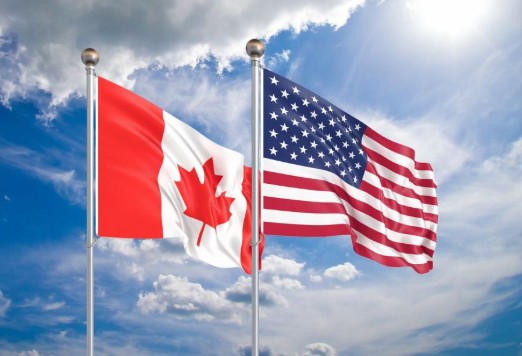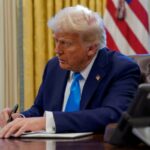Canadian Prime Minister Mark Carney announced that Canada and the United States have agreed to hold high-level talks aimed at addressing growing tensions over trade and security, but made clear that any negotiations must reflect Canadian sovereignty and priorities.
Speaking during a press conference in Ottawa on Thursday, Carney struck a firm tone, saying, “Canada will enter these talks on our own terms. We are a partner not a subordinate and we deserve respect in every engagement.” The comments come amid a noticeable cooling in relations between Ottawa and Washington over the past several months.
While neither government has publicly detailed a single triggering issue, sources close to the matter cite ongoing disputes over tariffs on Canadian aluminum and lumber, disagreements on border security cooperation, and diverging approaches to climate and defense spending within NATO as contributing factors.
Private Talks with Trump
Carney revealed that he has already held a private call with U.S. President Donald Trump, during which both leaders agreed to meet in the coming weeks. The exact date and location of the talks have yet to be announced, but officials say preparations are underway for what could be a pivotal diplomatic moment.
“Our relationship with the United States is deeply rooted, but that does not mean we will compromise on core Canadian values or interests,” Carney said.
A Shift in Tone
The newly appointed prime minister’s comments represent a noticeable shift in tone from previous Canadian administrations, which often sought to de-escalate tensions with Washington through behind-the-scenes diplomacy. Carney, a former central banker with a global reputation, appears to be positioning himself as a leader willing to confront U.S. pressure head-on if necessary.
Experts say the upcoming meeting could set the tone for North American relations for the remainder of Trump’s term.
“Canada is signaling that it wants to reset the relationship with the U.S. but on more equal footing,” said Rachel Tremblay, a political analyst at the University of Toronto. “It’s a bold approach, and it could resonate domestically.”
Looking Ahead
While key details remain under wraps, both sides are expected to bring forward proposals on economic cooperation, defense coordination, and possibly a new bilateral trade framework to replace or amend existing NAFTA-era provisions.
Despite tensions, Carney emphasized that Canada remains committed to constructive dialogue.
“There is more that unites our two countries than divides us,” he said. “But that unity must be built on mutual understanding and respect.”



